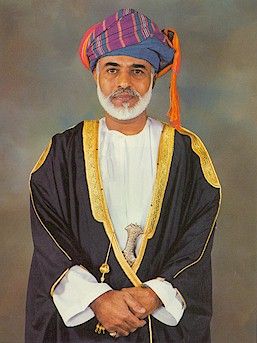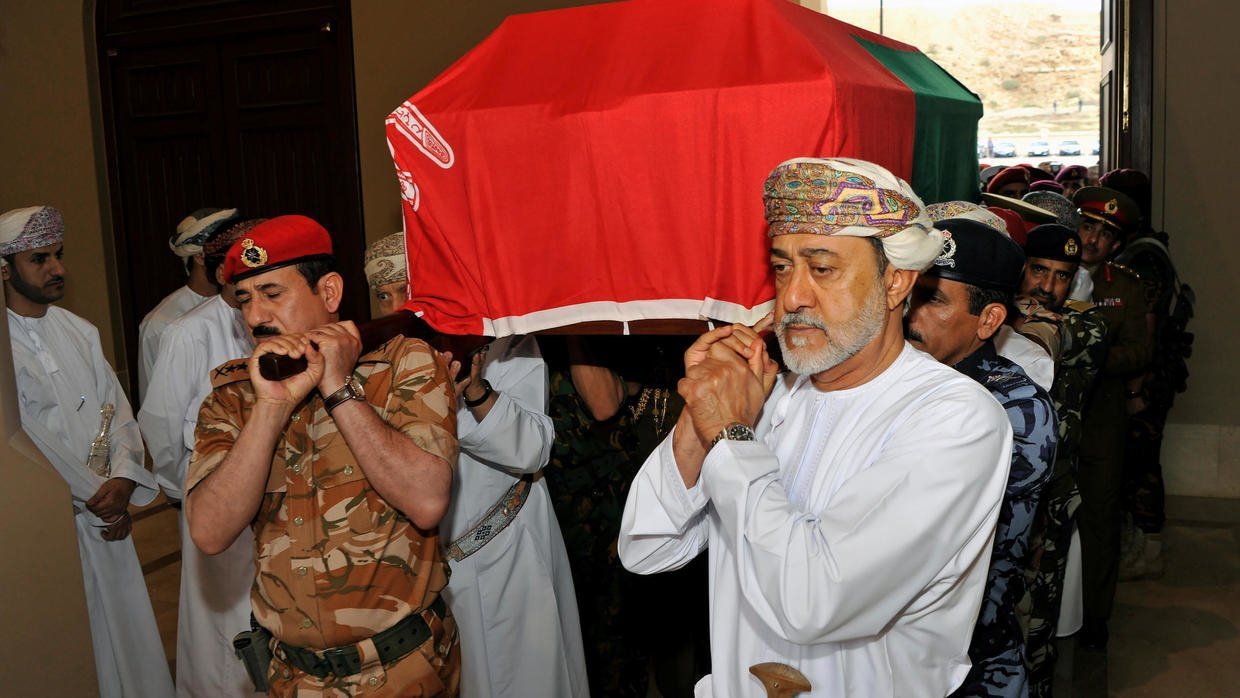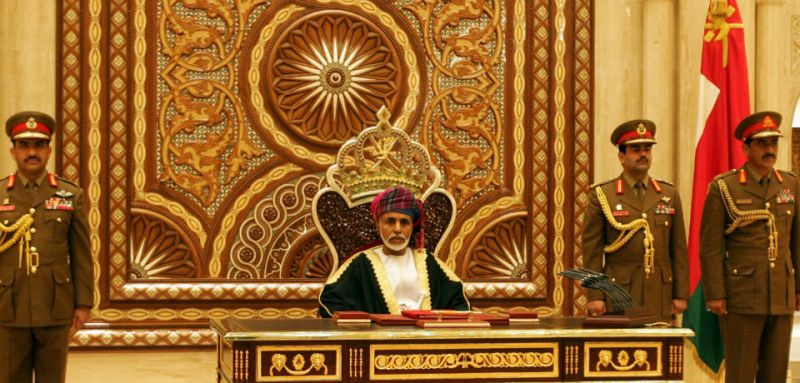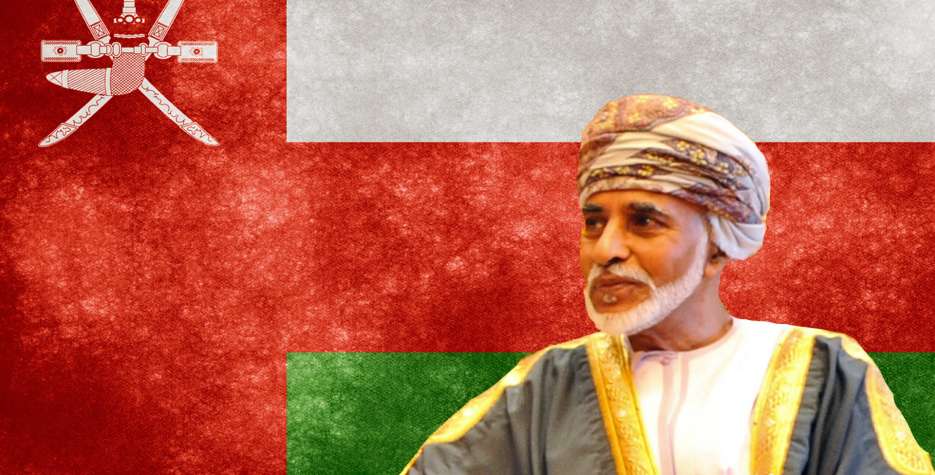The Sultan Qaboos bin Said was the Sultan of love, peace and harmony died some days ago. He was longest serving ruler in the Gulf Cooperation Council (GCC) and the Arab World too whose extension of rule had not been based on obsession of power and denial of basic human rights. Rather he promptly abolished slavery which was earlier permitted in Oman.
He was a great visionary which had a kind heart. He successfully transformed Oman from medieval style feudalism toward the embrace of globally oriented policies that hastened modernization and broadened the country’s political influence. His constant neutrality saved his country from regional rivalries and conflicts. He always played reconciliatory role in the region and beyond. Even his holistic policies built the Wall of Berlin/Gulf in the country by which he successfully mitigated fires of so called Arab Spring”. He institutionalized massive reforms in the country which put Oman on the path of modernization, sustainable development, political stability, and Omanization.
Sultan Qaboos bin Said was a great administrator who never allowed anyone to plough seeds of discrimination, hatred, bigotry and prejudice in the country. Under his rule, Oman has been an ideal place of communal integration, interfaith harmony, peace and development.
He was pioneer of strategic vision in the region. He was the first who introduced “Vision 2020” in the GCC, MENA and the whole Arab world. According to latest official reports (December 2019), more than 75 percent targets of the vision 2020 have been achieved. Vision 2040 is another value addition in this regard. Sultanate of Oman has been declared Switzerland of Arab world because of its vast natural beauties, rich human traits, holistic approaches and above all people’s friendly governance.
He was maestro of economic development in the region who introduced concepts of public-private partnership and transformed the rule of the game to accelerate economic growth in the country. He nurtured means of privatization through solid and consolidated economic liberalization, series of reforms, good governance and foreign direct investments and joint ventures etc.
He was architect of modern Oman. He was guru of human resource management. He patronized spirits of high education, knowledge, wisdom, smart economy, artificial intelligence (Oman is the second ideal hub of artificial intelligence after Dubai in the region) and digitalization which transformed Oman into land of opportunity and dreams in the region and beyond.

Sultan Qaboos bin Said was the pioneer of “Blue Economy” in the region which occupies the southeastern corner of the Arabian Peninsula. It also holds a strategic enclave across from Iran at the Strait of Hormuz, a narrow waterway at the mouth of the Persian Gulf and the route for tankers carrying about one-sixth of the world’s oil supply. He developed aviation industry, seaports and logistic hubs to channelize best utility of its waters.
He was great strategist of sustainable development in the region through massive diversification of economy, channels of production, massive industrialization, development of renewables, persuasion of green technologies and constant development of non-oil sector in the country. During his period Oman has become one of the hottest destinations for regional as well as international tourists.
He was a futuristic personal with unlimited charismatic human traits. Throughout his rule during the last 50 years, he outshined other countries through his incomparable skills of diplomacy, dialogue and development having supreme art of conflict resolution. His facilitations and mediations acted like a bridge among the friends and foes.
He believed in achieving a qualitative life. He initiated various short and long terms socio-economic reforms to achieve this goal which ultimately transformed the daily lives of his countrymen even rural areas in the country. Widespread of schools, colleges and universities, social care center, sate-of-the-art hospitals, research centers and scholarships for higher education are all witness of the valuable contribution of late Sultan Qaboos bin Said in the fields of socio-economy in the country.The Sultan of love had wise leadership qualities to tackle all issues with ease. He had immaculate capacity and endurance to deal with potential developments and emerging trends. Throughout his rule he enjoyed unimaginable political stability, social harmony and security throughout his country. It followed a free market policy and respected individual property rights too. The natural resources available and the strategic “geographical location” of the Sultanate of Oman is considered one of the countries that provide a “suitable” and “encouraging climate” for “foreign investment”; this is particularly true after the “reformulation of laws” and regulations relating to this during 1994.

The Sultanate of Oman under the “strategic leadership” of late HIS MAJESTY SULTAN QABOOS BIN SAID has successfully achieved numerous economic goals. Massive diversification of economy, resources and channels of production has already transformed it into a “hot attraction” for the foreign companies and investors alike to make huge investments in the country. Visions 2020 & 2040 provide ideal platform to achieve greater economic prosperity, regional integration, energy & food security, creation of new jobs, social security, political stability, high ratios of GDPs, GNPs, high literacy rate and provision of best medical facilities.
Persuasion of peace and its sustainability has been one of the integral parts of his national policies during the last 50 years. He was a great political leader and Sultanate of Oman undoubtedly witnessed political stability and maturity despite widespread political chaos, conflicts and rivalries in the region. His neutrality status remained beacon of hope, conflict resolution and peace in the region.
Despite widespread international fears and media speculations his successor was quickly announced by Oman state television: Haitham bin Tariq al Said, who served as the sultan’s culture minister has been declared new sultan of Oman. It showed strength of his ongoing reforms because of which there is no political vacuum or space for any kind of discontinuity and discomfort.

Sultan Qaboos was born on Nov. 18, 1940, and he was the only son of Oman’s ruler, Sultan Said bin Taimur. His father had led the country since the early 1930s and kept it as it had been for centuries: Most of the capital, Muscat, was lit by lanterns at night, there were only a few miles of paved roads, and slavery was permitted. Oman’s status in the world was largely defined by its place in legend as the home of Sinbad, its modest exports of aromatic frankincense, and its colorful turbans influenced by centuries of trade with South Asia and East Africa.
Sultan Qaboos was really a nation-builder who took a place of tribal rivalries and a patchwork of regions and gave it a sense of nationhood. He was founder of his rich culture and traditions. He did not follow virtual development of Dubai and Abu Dhabi, stressing that Muscat and other cities should generally retain their traditional character and architecture as much as possible, even as five-star resorts. Sultan Qaboos was content to cultivate cottage industries such as building traditional wooden sailing vessels, known as dhows, and reviving the tradition of Arab perfume-making with a high-end fragrance house, Amouage. Sultan Qaboos was the most enigmatic personality in the fraternity of gulf leaders.
Sultan Qaboos stressed the need for education, greater participation of women in civic affairs and Oman’s goal of diversifying its oil-based economy.
World leaders and the people of Oman have paid tributes to Sultan Qaboos bin Said Al Said, the Arab world’s longest-serving ruler. UK Prime Minister Boris Johnson and the Prince of Wales arrived in Muscat for a condolence ceremony as the country marks three days of mourning. Sultan Qaboos set Oman on a path to development after coming to power in 1970. The emirs of Kuwait, Qatar and the United Arab Emirates as well as the king of Bahrain and the Tunisian president were among the foreign leaders who travelled to Muscat for the ceremony at al-Alam Palace. The Japanese Prime Minister, Shinzo Abe, also paid personal visit to pay his respects.
Undoubtedly Sultan Qaboos bin Said Al Said had left a “profound legacy, not only in Oman but across the region who maintained the country’s neutrality amid unrest throughout the region. His services towards regional integration and connectivity are immense and unprecedented. He was a great leader who worked tirelessly to promote peace and stability in the region. He was man of spirit and culture. He was icon of peace, understanding and coexistence”
In a televised speech after being sworn in, Sultan Haitham pledged to continue his predecessor’s policies of friendly relations with all nations while further developing the country. Death is a bitter reality of our existence on this planet but unlimited golden deeds of late HIS MAJESTY SULTAN QABOOS BIN SAID will be cherished forever in the memories of his countrymen, regional people and globe audience alike because of his wise conduct, balanced character and holistic approach to achieve goals. Now he has become larger than life character, SULTAN THE IMMORTAL.
Death is a bitter reality of our existence on this planet but unlimited golden deeds of late HIS MAJESTY SULTAN QABOOS BIN SAID will be cherished forever in the memories of his countrymen, regional people and globe audience alike because of his wise conduct, balanced character and holistic approach to achieve goals. Now he has become larger than life character, SULTAN THE IMMORTAL.
